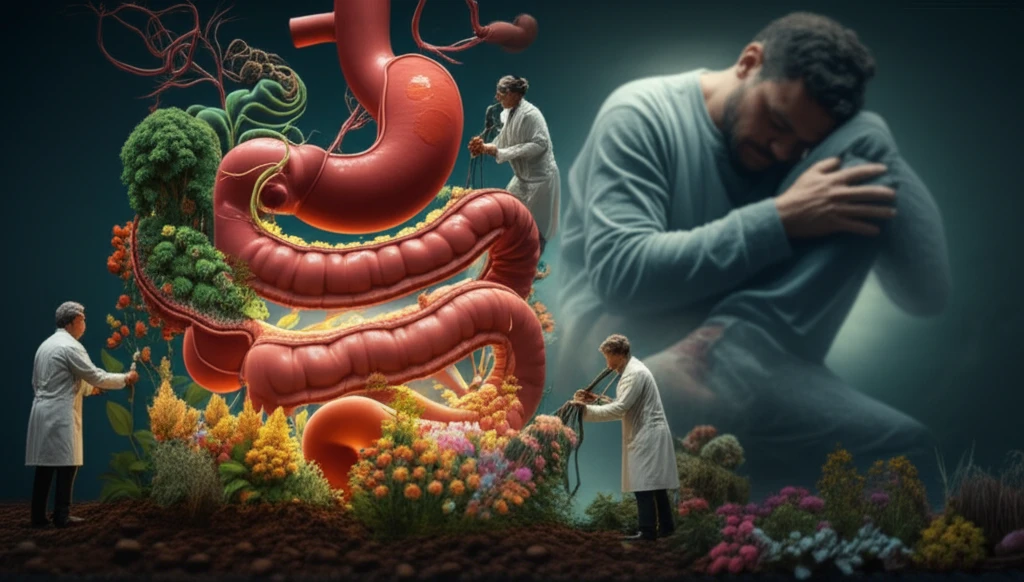
Gut Check: Can Gene Therapy Really Fix Digestive Diseases Like MNGIE?
"New research explores the potential and limitations of gene therapy and stem cell transplants for treating the gastrointestinal complications of Mitochondrial Neurogastrointestinal Encephalomyopathy (MNGIE)."
Imagine a disease that not only affects your brain and nerves but also wreaks havoc on your digestive system. That's the reality for people living with Mitochondrial Neurogastrointestinal Encephalomyopathy, or MNGIE. This rare genetic disorder causes a range of debilitating symptoms, with gastrointestinal complications being a major cause of concern. While treatments exist to manage the biochemical imbalances, a true fix for the digestive issues has remained elusive – until maybe now.
A groundbreaking study has delved into the intricate details of MNGIE, exploring the effects of gene therapy and stem cell transplantation on the intestinal pathology of both human patients and a mouse model of the disease. The results offer a glimmer of hope, while also highlighting the challenges that still lie ahead in our quest to conquer MNGIE.
This research evaluates the impact of hematopoietic stem cell transplantation on the intestinal neuromuscular system in MNGIE patients and mice. The study looks at tissue samples, cell densities, and genetic markers to assess whether transplants can reverse damage from the disease. Discover what the scientists found and what this could mean for future MNGIE treatments.
MNGIE: A Gut-Wrenching Reality

MNGIE is a rare genetic disorder caused by mutations in the TYMP gene. This leads to an accumulation of thymidine and deoxyuridine in the body, causing a cascade of problems. While the neurological symptoms like external ophthalmoplegia (eye muscle weakness) and leukoencephalopathy (brain white matter damage) are well-known, the gastrointestinal issues are often the most devastating. Chronic intestinal pseudo-obstruction (CIPO) is a hallmark of MNGIE, affecting a large percentage of patients. Other common symptoms include:
- Early satiety (feeling full quickly)
- Nausea
- Dysphagia (difficulty swallowing)
- Post-prandial emesis (vomiting after meals)
- Abdominal pain and distention
- Diarrhea
Looking Ahead: The Future of MNGIE Treatment
This study underscores the complexity of MNGIE and the need for continued research to develop more effective treatments. While hematopoietic stem cell transplantation holds promise, it may not be sufficient to fully restore intestinal function, particularly in patients with advanced disease. Future therapies may need to focus on directly targeting the damaged intestinal cells, such as the interstitial cells of Cajal, to restore normal motility and alleviate gastrointestinal symptoms. As research continues and new insights emerge, there's growing hope that more effective and targeted treatments will become available, offering a brighter future for those living with MNGIE.
